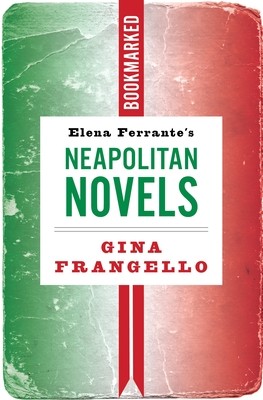
- We will send in 10–14 business days.
- Author: Gina Frangello
- Publisher: Ig Publishing
- ISBN-10: 1632461625
- ISBN-13: 9781632461629
- Format: 13.3 x 20.3 x 1.1 cm, minkšti viršeliai
- Language: English
- SAVE -10% with code: EXTRA
Reviews
Description
What is it about Elena Ferrante's writing, especially her masterwork Neapolitan Novels, that resonates so deeply with millions of readers, making this Italian author who writes under a pseudonym with absolutely no "platform," an international sensation? Brilliantly addressing issues such as class struggle, female friendship, women's autonomy, and literary creation itself, Ferrante's hyperrealist, intense storytelling is a saga of a highly specific place and history, yet somehow also transcends them, resonating on profoundly personal levels with readers of every background.
Gina Frangello grew up in poverty in inner-city Chicago two decades after Ferrante's most famous characters, Lenu and Lila grew up in Naples. Despite these seemingly insurmountable difference, Frangello felt that Ferrante was "writing about my youth, my life, my relationships, my struggles."
In the latest volume in the Bookmarked series, Gina Frangello contemplates Ferrante's Neapolitan novels through the lens of memoir, literary criticism, and issues of authorial identity and gender. Should who Ferrante "is" matter? And more importantly, what is it about Lenu and Lila's story that taps into such universal truths that makes readers feel that Ferrante is writing specifically to them?
EXTRA 10 % discount with code: EXTRA
The promotion ends in 23d.01:34:30
The discount code is valid when purchasing from 10 €. Discounts do not stack.
- Author: Gina Frangello
- Publisher: Ig Publishing
- ISBN-10: 1632461625
- ISBN-13: 9781632461629
- Format: 13.3 x 20.3 x 1.1 cm, minkšti viršeliai
- Language: English English
What is it about Elena Ferrante's writing, especially her masterwork Neapolitan Novels, that resonates so deeply with millions of readers, making this Italian author who writes under a pseudonym with absolutely no "platform," an international sensation? Brilliantly addressing issues such as class struggle, female friendship, women's autonomy, and literary creation itself, Ferrante's hyperrealist, intense storytelling is a saga of a highly specific place and history, yet somehow also transcends them, resonating on profoundly personal levels with readers of every background.
Gina Frangello grew up in poverty in inner-city Chicago two decades after Ferrante's most famous characters, Lenu and Lila grew up in Naples. Despite these seemingly insurmountable difference, Frangello felt that Ferrante was "writing about my youth, my life, my relationships, my struggles."
In the latest volume in the Bookmarked series, Gina Frangello contemplates Ferrante's Neapolitan novels through the lens of memoir, literary criticism, and issues of authorial identity and gender. Should who Ferrante "is" matter? And more importantly, what is it about Lenu and Lila's story that taps into such universal truths that makes readers feel that Ferrante is writing specifically to them?


Reviews